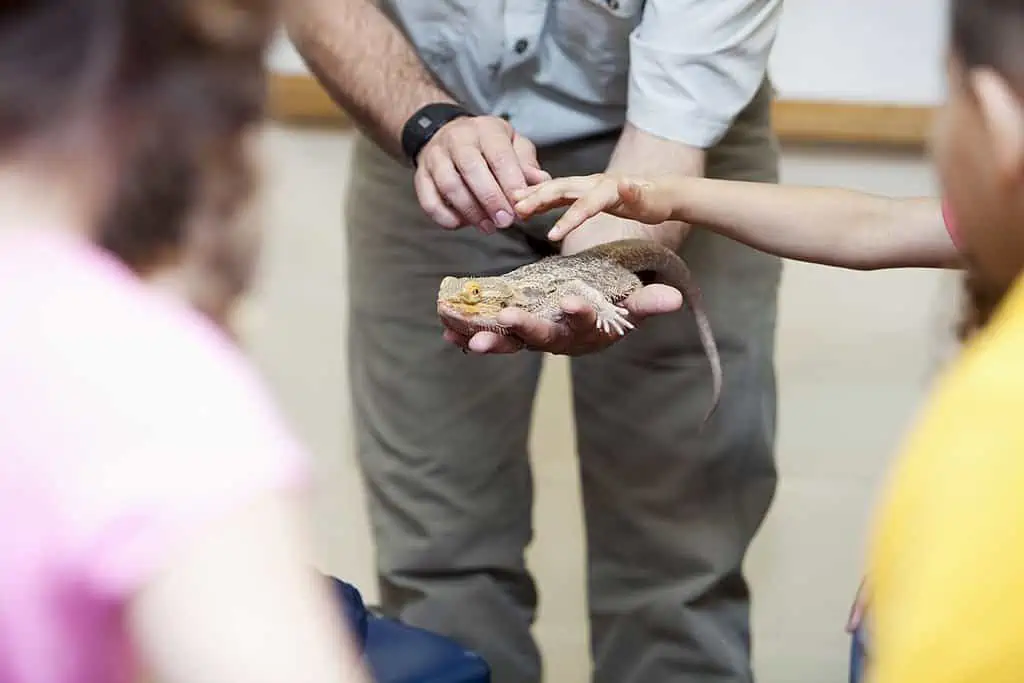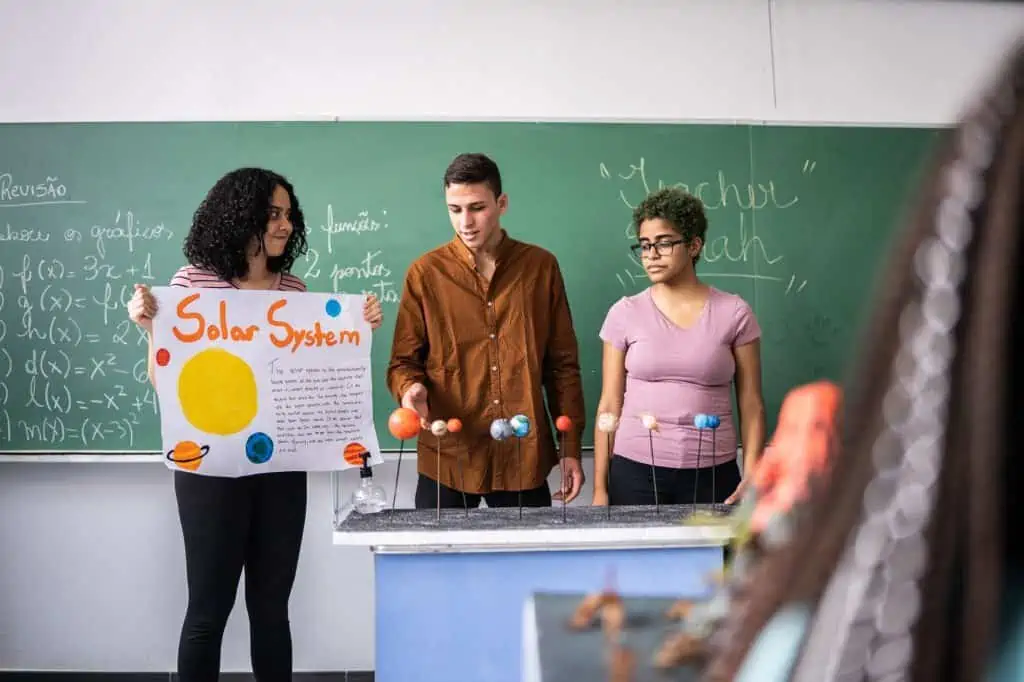Science has the highest dropout rate among tertiary institutions, mainly because succeeding in it is demanding. You must master mathematics, reading comprehension, and analytical writing to navigate its stormy waters.
Although the class may look complicated, some courses are easier than others. These courses have less emphasis on STEM, giving you a better shot at scoring high grades.
This article will introduce you to the easiest science classes in college. You’ll also learn why these courses are simpler than the others and get insightful tips to help select the perfect science class for you.
Is Science Difficult?
Many students believe that science class is complex. However, there are a lot of others that find the class easy as well. Therefore, students have different strengths and weaknesses that can influence their perspective of science classes.
Some students are more academically sound in courses requiring more reading and writing rather than calculations. These categories of students will find science class challenging. Other categories of students love calculations and understand them easily. These student types will find science class less challenging and have a better chance of graduating with good grades.
The number of students who dislike calculations is significantly higher than those who do, which is why most believe science classes are demanding. However, some science courses are more challenging than others, and understandably, these are courses that require extensive calculations.
Tips for Choosing the Right Science Class
Whether or not you’re a science major, selecting the correct course is crucial to your success. Luckily, there are a few tips that can help your selection. What are some of these tips?

1. Look for a Class With Less Maths
You can have your definition of a “hard class,” but as mentioned earlier, it involves many calculations for most students. If you fall into this category, opting for a science class that requires little maths will help.
If other subjects apart from maths are where your weaknesses lie, you can use the same logic and opt for a class where you’ll have less of that subject.
2. Go for a Class that Interests You!
Do you like nature and its components? Opting for environmental science could be your calling. If you love animals, you’ll enjoy Zoology. Nutrition will bring the best out of you if you’re a food fanatic, and the list could go on and on.
One of the many advantages of science class is that you can get what you like, no matter your hobby. Before selecting a course, conduct extensive research to find the right one. When you do this, you’ll get more enjoyment than challenges from what you do.
3. Research Your Course Lecturer
It might sound mischievous, but the type of lecturer that takes your course can influence your success. Sometimes, you can enjoy a class you think you dislike if you have a good lecturer. At the same time, you can hate a course you fancy if you have a below-par lecturer.
Objectively, having a demanding professor in seemingly strenuous courses can help you better understand it because you won’t want to get into the wrong book. However, the lecturer should be soft for you to find a class easily.
The best way to know about a particular lecturer before attending class is to ask their previous students. If there’s something anyone would be completely honest about, it’s rating their professors, as long as you aren’t asking their son or daughter.
4. Choose a Class That’s Anchored to Reality
Another efficient way to select a course is to choose one that can impact your daily life. For instance, having botany knowledge can help as you can have fun with your friends. You can tell them about grasses and their uses.
If you study nutrition, you can jokingly tell them how to make the delicious meal you ate at the restaurant. Reading a course applicable to daily situations can help you get along with it well, and these courses are usually the simplest.
Now that you know how to select the correct classes, the following section will educate you on some of the simplest science courses.
The Easiest Science Classes in College
Below are some of the easiest science classes you can take in college.
1. Geology

Geology is the study of the solid Earth and how it changes over time. It’s one of the easiest science classes because you won’t need to study complex maths. All you will deal with is the Earth and its components like floods, glaciers, rocks, and even minerals.
Note that you’ll be doing many memorizations of information in Geology. Fluid dynamics is the most technical aspect, but it shouldn’t cause problems if you are a science student. Moreover, you’re already familiar with most things you’ll learn in fluid dynamics at high school.
2. Social Science

Social science is the branch of science that examines the relationship between humans and society. Social scientists study all aspects of the community to help them understand how it works. Some of the most popular branches of social science include anthropology, sociology, geography, archeology, and psychology.
In sociology, you’ll read widely, conduct many kinds of research, and cover an extensive syllabus. While you’ll do some maths, it isn’t the focus of social science courses. It’s best to prepare your mind for the challenges you might face in the class.
3. Environmental Science

Environmental science encompasses the study of Earth and all living creatures on it. It’s perfect for curious students who have a passion for the environment. Even if you don’t have these characteristics, you’ll find it easy because most students pass it.
Environmental science has elements of maths, chemistry, and biology. However, many schools offer introductory environmental science courses that are easy for majors and minors. It will focus on some challenging aspects, making things easy for you.
Good communication, critical thinking, and problem-solving skills can help you navigate Environmental Science classes successfully.
4. Botany

Botany is the study of plants. You’ll study how they grow, their uses, and many other essential aspects of plant life. Chemistry is crucial to botany, so consider the factor.
A degree in Botany can open up opportunities for you in horticulture, agriculture, food manufacturing, and healthcare industries. Botany students study maths, physics, chemistry, and biology. Expect to be on the field and lap regularly, examining plant samples.
5. Zoology

Zoology is the study of animals and their life. The course requires studying the animal’s evolution, classification, structure, embryology, habits, and many other aspects. Of course, you’ll enjoy studying Zoology if you love animals.
There are demanding parts of every easy course, and in Zoology, you won’t be studying only common animals. Also, you’ll do anatomy and physiology. You’ll even analyze humans because, technically, we’re part of the animal kingdom.
6. Psychology

Psychology is one of the most popular science classes in college. It encompasses studying the human mind and behavior. Outside college, it’s an interesting topic that many people read individually.
Aside from studying others, the field will also let you understand the kind of person you are. As you might’ve guessed, the course requires very little maths, but you might do a bit of statistical processing. Generally, you’ll be involved in communication, critical thinking, and problem-solving. Therefore, it’s imperative to have these skills at the very least.
7. Nutrition

Nutrition is the study of food and raw materials. The course makes students understand foods, raw materials, and how people make and store them. You’ll be studying how to make different types of foods and the relationship between different types of meals and human health.
It’s imperative to note that you’ll be doing some Chemistry if you study nutrition. However, it won’t be as extensive as other demanding science courses. If you love Biology, you’ll find the part where you must learn how food works in the body fascinating.
Students who enjoy cooking and learning about food will find the class captivating. Aside from the food aspects of nutrition, you can also develop insightful skills to help you with future job applications. One such trait is teamwork and critical thinking.
8. Forensic Science

Forensic science is the branch that deals with using science to aid criminal investigation. In a broader sense, it encompasses fingerprint and DNA analysis, bloodstain pattern analysis, tool mark analysis, firearms examinations, ballistics, etc. However, you’ll only go into the depth of forensics if you’re majoring in it.
If you’re not majoring in the class, you’ll find it interesting, especially if you like Criminology. You don’t need to have any extraordinary skills to study forensics. Knowledge in forensics will help you gain essential life skills like critical thinking, attention to detail, organizing, listening skills, teamwork, and many others.
9. Astronomy

Before we delve in, don’t confuse this course with Astrology. Although they have similar names and concepts, they are different.
Astronomy studies the outer universe and its content using maths, physics, and chemistry. On the other hand, Astrology examines how the universe and its position affect our planet. Also, Astronomy is a natural science, while Astrology is a pseudoscience.
Of course, you can guess that classes that involve studying the outer universe can be difficult, but it’s if you’re a major in astronomy. You’ll have a lot of fun if you take it as a minor course in college.
10. Computer Science

If you major in computer science, prepare for the next few years doing what you like best. You’ll go through the most extensive and demanding syllabus to prepare for the task. If you aren’t majoring in it, you can sit back and enjoy the juicy aspects of studying the course.
Technology rules the world now, and taking the course in college will make you navigate the technologically infused world better. It’ll give you an edge in future employment if the position requires computer literacy.
Anybody can take computer science classes. Having existing computer knowledge, problem-solving skills, and an ability to analyze and diagnose problems will set you apart from other students.
Conclusion
These are some of the most uncomplicated science classes in college. It’s imperative to note that students still fail the seemingly ”easy” classes. Even if you find a class relatively easy, try your best to ensure that you pass with flying colors.
Opting for what you love is the trick to finding an easy class. If you choose a career that suits your strengths, personal interests, and academic goals, you’ll find all the courses interesting, even if it’s not. Furthermore, you’ll be pumped to put extra effort into the aspects that look challenging for you.

Sam is a brilliant young Nigerian biochemistry student and an aspiring entrepreneur. Despite facing many challenges, he has never lost his passion for learning and drive to make a difference in the world. Read more about him here.